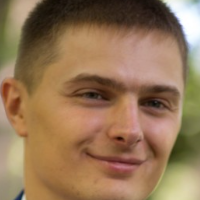International Journal of Intelligent Systems and Applications (IJISA)
IJISA Vol. 9, No. 9, 8 Sep. 2017
Cover page and Table of Contents: PDF (size: 422KB)
A Multidimensional Extended Neo-Fuzzy Neuron for Facial Expression Recognition
Full Text (PDF, 422KB), PP.29-36
Views: 0 Downloads: 0
Author(s)
Index Terms
Computational Intelligence, Facial Expression, Image Recognition, Extended Neo-Fuzzy Neuron, Machine Learning, Data Stream
Abstract
An article introduces a modified architecture of the neo-fuzzy neuron, also known as a "multidimensional extended neo-fuzzy neuron" (MENFN), for the face recognition problems. This architecture is marked by enhanced approximating capabilities. A characteristic property of the MENFN is also its computational plainness in comparison with neuro-fuzzy systems and neural networks. These qualities of the proposed system make it effectual for solving the image recognition problems. An introduced MENFN’s adaptive learning algorithm allows solving classification problems in a real-time fashion.
Cite This Paper
Zhengbing Hu, Yevgeniy V. Bodyanskiy, Nonna Ye. Kulishova, Oleksii K. Tyshchenko, "A Multidimensional Extended Neo-Fuzzy Neuron for Facial Expression Recognition", International Journal of Intelligent Systems and Applications(IJISA), Vol.9, No.9, pp.29-36, 2017. DOI:10.5815/ijisa.2017.09.04
Reference
[1]Zh. Hu, Ye.V. Bodyanskiy, O.K. Tyshchenko, and V.O. Samitova,"Fuzzy Clustering Data Given in the Ordinal Scale", International Journal of Intelligent Systems and Applications (IJISA), Vol.9, No.1, pp.67-74, 2017.
[2]Zh. Hu, Ye.V. Bodyanskiy, O.K. Tyshchenko, and V.O. Samitova,"Fuzzy Clustering Data Given on the Ordinal Scale Based on Membership and Likelihood Functions Sharing", International Journal of Intelligent Systems and Applications (IJISA), Vol.9, No.2, pp.1-9, 2017.
[3]Zh. Hu, Ye.V. Bodyanskiy, O.K. Tyshchenko, V.O. Samitova,"Possibilistic Fuzzy Clustering for Categorical Data Arrays Based on Frequency Prototypes and Dissimilarity Measures", International Journal of Intelligent Systems and Applications (IJISA), Vol.9, No.5, pp.55-61, 2017.
[4]Zh. Hu, Ye.V. Bodyanskiy, O.K. Tyshchenko, V.M. Tkachov, “Fuzzy Clustering Data Arrays with Omitted Observations”, International Journal of Intelligent Systems and Applications (IJISA), Vol.9, No.6, pp.24-32, 2017.
[5]Ye. Bodyanskiy, O. Tyshchenko, and D. Kopaliani, “An Evolving Connectionist System for Data Stream Fuzzy Clustering and Its Online Learning”, Neurocomputing, 2016 (article in press).
[6]Ye. Bodyanskiy, O. Tyshchenko, and D. Kopaliani, “An evolving neuro-fuzzy system for online fuzzy clustering”, Proc. Xth Int. Scientific and Technical Conf. “Computer Sciences and Information Technologies (CSIT’2015)”, pp.158-161, 2015.
[7]L. Rutkowski, Computational Intelligence. Methods and Techniques. Berlin Heidelberg: Springer-Verlag, 2008.
[8]C.L. Mumford and L.C. Jain, Computational Intelligence. Berlin: Springer-Verlag, 2009.
[9]R. Kruse, C. Borgelt, F. Klawonn, C. Moewes, M. Steinbrecher, and P. Held, Computational Intelligence. A Methodological Introduction. Berlin: Springer-Verlag, 2013.
[10]Ye. Bodyanskiy, “Computational intelligence techniques for data analysis”, in Lecture Notes in Informatics, 2005, P-72, pp.15–36.
[11]T. Yamakawa, E. Uchino, T. Miki and H. Kusanagi, “A neo fuzzy neuron and its applications to system identification and prediction of the system behavior”, Proc. 2nd Int. Conf. on Fuzzy Logic and Neural Networks “IIZUKA-92”, pp. 477-483, 1992.
[12]E. Uchino and T. Yamakawa, “Soft computing based signal prediction, restoration and filtering”, Intelligent Hybrid Systems: Fuzzy Logic, Neural Networks and Genetic Algorithms, Boston: Kluwer Academic Publisher, pp. 331-349, 1997.
[13]T. Miki and T. Yamakawa, “Analog implementation of neo-fuzzy neuron and its on-board learning”, Computational Intelligence and Applications, Piraeus: WSES Press, pp. 144-149, 1999.
[14]J. Zhang and H. Knoll, “Constructing fuzzy-controllers with B-spline models – Principles and Applications”, Int. J. of Intelligent Systems, vol.13, pp.257-285, 1998.
[15]V. Kolodyazhniy and Ye. Bodyanskiy, “Cascaded multiresolution spline-based fuzzy neural network”, Proc. Int. Symp. on Evolving Intelligent Systems, pp.26-29, 2010.
[16]Ye. Bodyanskiy, O. Tyshchenko, and D. Kopaliani, “Adaptive learning of an evolving cascade neo-fuzzy system in data stream mining tasks”, Evolving Systems, Vol.7, No.2, pp.107-116, 2016.
[17]Ye. Bodyanskiy, O. Tyshchenko, and D. Kopaliani, “A hybrid cascade neural network with an optimized pool in each cascade”, Soft Computing, Vol.19, No.12, pp.3445-3454, 2015.
[18]Zh. Hu, Ye.V. Bodyanskiy, O.K. Tyshchenko, and O.O. Boiko, “An Evolving Cascade System Based on a Set of Neo-Fuzzy Nodes”, International Journal of Intelligent Systems and Applications (IJISA), Vol.8, No.9, pp.1-7, 2016.
[19]Ye. Bodyanskiy, I. Kokshenev, and V. Kolodyazhniy, “An adaptive learning algorithm for a neo-fuzzy neuron”, Proc. 3rd Int. Conf. of European Union Soc. for Fuzzy Logic and Technology (EUSFLAT’03), pp.375 379, 2003.
[20]S. Haykin, Neural Networks and Learning Machines (3rd Edition). NJ: Prentice Hall, 2009.
[21]G.C. Goodwin, P.J. Ramage, and P.E. Caines, “Discrete time stochastic adaptive control”, SIAM J. Control and Optimization, Vol.19, pp.829-853, 1981.
[22]L.X. Wang and Mendel J.M., Fuzzy basis functions, universal approximation and orthogonal least squares learning. IEEE Trans. on Neural Networks, Vol.3, pp.807-814, 1993.
[23]L.X. Wang, Adaptive Fuzzy Systems and Control. Design and Stability Analysis. Upper Saddle River: Prentice Hall, 1994.
[24]S. Osowski, Sieci neuronowe do przetwarzania informacij. Warszawa: Oficijna Wydawnicza Politechniki Warszawskiej, 2006.
[25]Ye.V. Bodyanskiy and N.Ye. Kulishova, “Extended neo-fuzzy neuron in the task of images filtering”, Radioelectronics, Computer Science, Control, Vol.1(32), pp.112-119, 2014.
[26]Ye. Bodyanskiy, O. Tyshchenko, and D. Kopaliani, “An Extended Neo-Fuzzy Neuron and its Adaptive Learning Algorithm”, I.J. Intelligent Systems and Applications (IJISA), Vol.7, No.2, pp.21-26, 2015.
[27]http://pics.psych.stir.ac.uk/2D_face_sets.htm
[28]Handbook of Face Recognition. London: Springer-Verlag, 2011.
[29]P. Lucey, J.F. Cohn, T. Kanade, J. Saragih, Z. Ambadar, and I. Matthews, “The Extended Cohn-Kanade Dataset (CK+): A complete dataset for action unit and emotion-specified expression”, Proc. IEEE workshop on CVPR for Human Communicative Behavior Analysis, San Francisco, USA, 2010.
[30]N. Kulishova, “Emotion Recognition Using Sigma-Pi Neural Network”, Proc. 2016 IEEE First International Conference on Data Stream Mining & Processing (DSMP), pp.327-331, 2016.



